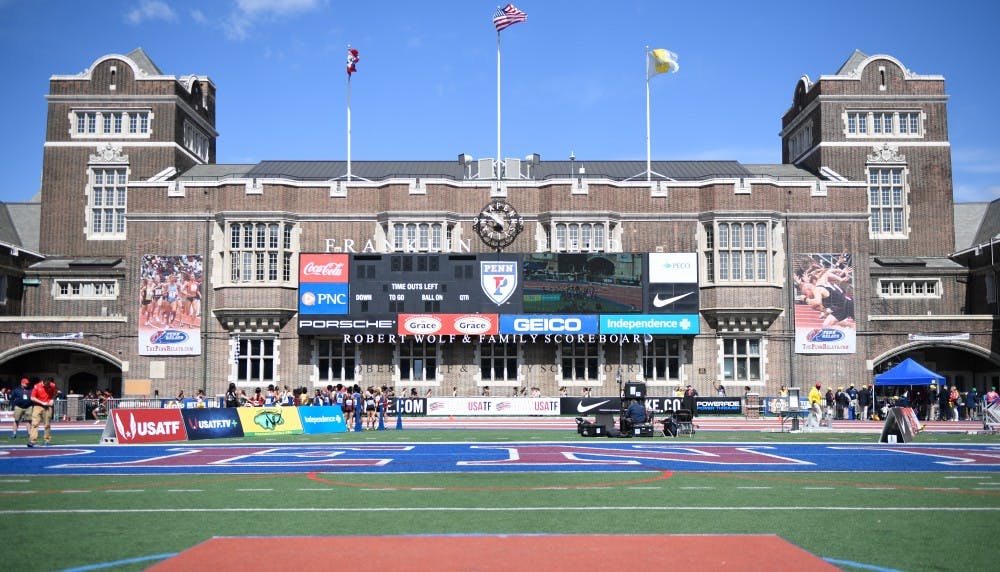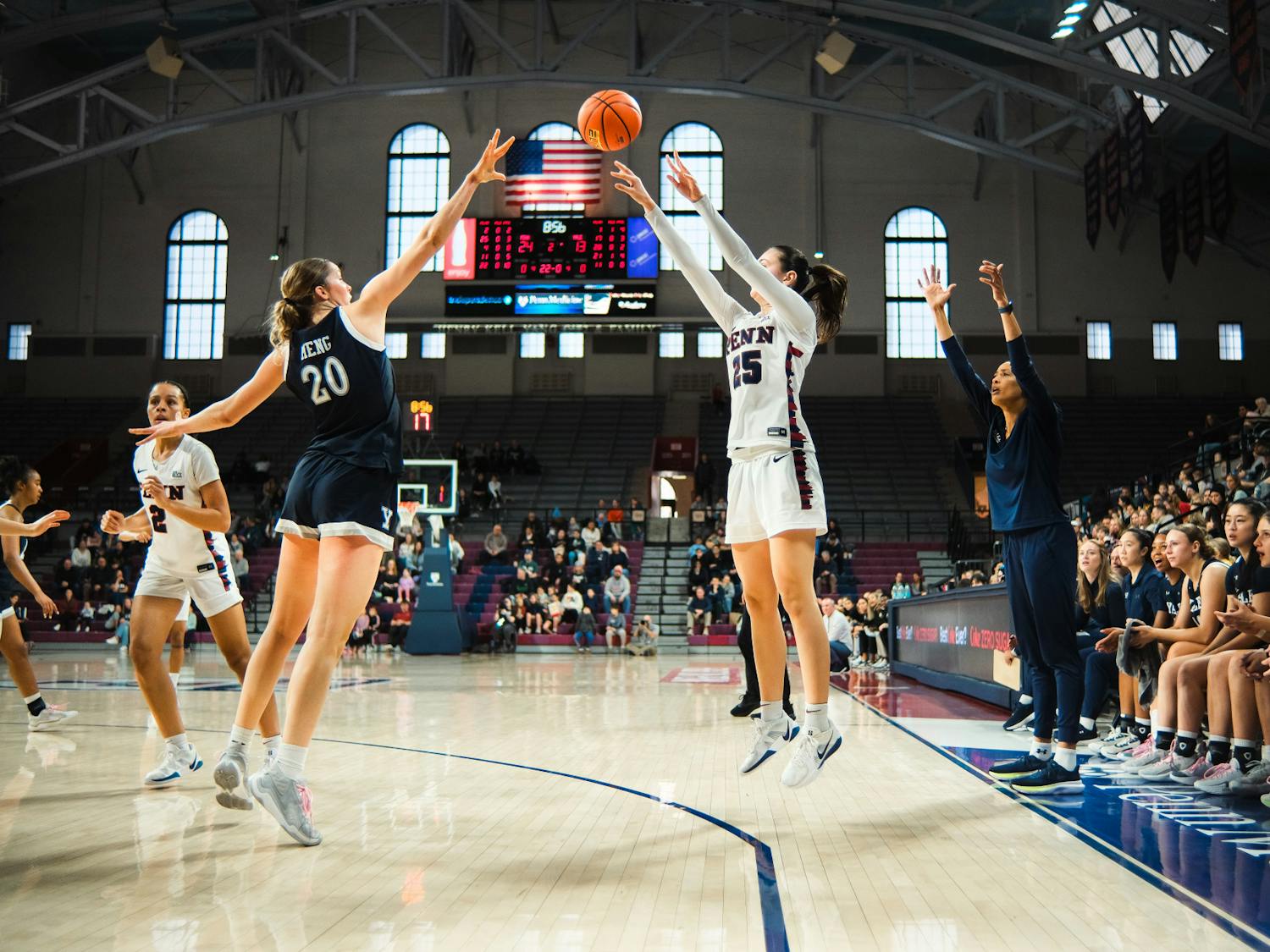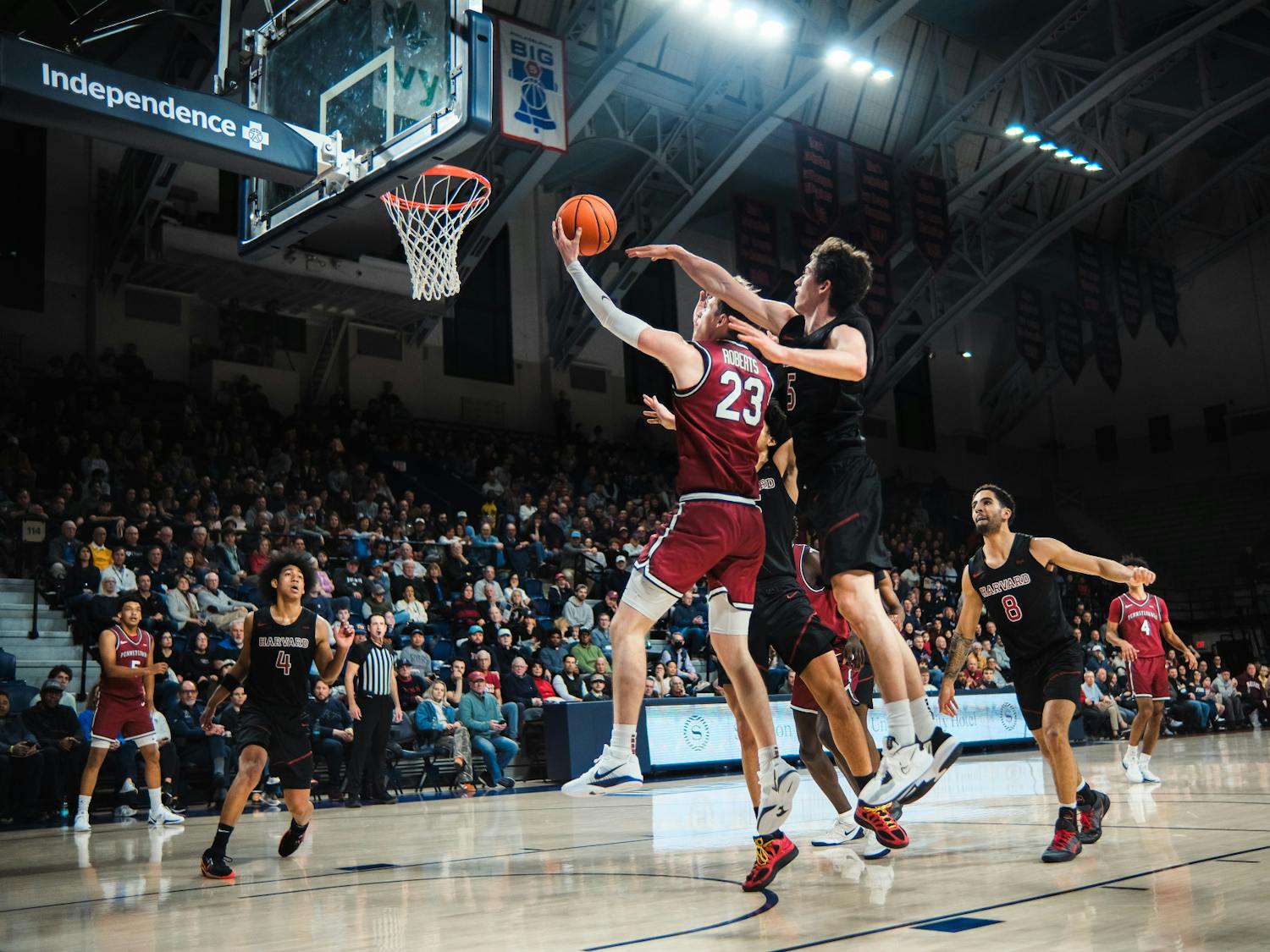On Jan. 16, the DP had an hour-long sit-down with Associate Athletic Director for Sports Performance Andrea Wieland. Among the topics discussed with Wieland, who has been working at Penn since July 2018, were mental health, mental performance, athletic training, and sports psychology. Here are three key takeaways from the meeting.
Data is used extensively to allocate mental health resources
A point of emphasis for Wieland throughout the discussion was her data-driven approach. That manifests itself in different ways in each of the sports performance areas that she oversees, but some of the more interesting applications of this analytical style relate to mental health specifically.
When athletes report issues to members of Counseling and Psychological Services, information like their sport and year is collected in a way that maintains personal confidentiality. That data is then pooled at the end of each month and evaluated by an external mental health consultant. If certain trends appear, CAPS resources might be allocated differently to accommodate the athletes’ specific needs.
“I think the data is really going to help us with decision making,” Wieland said. “Without the data, we are just stabbing in the dark and hoping for the best.”
In particular, Wieland mentioned that this data collection process allowed her department to determine that one Penn Athletics team was in need of extra resources, and a CAPS member has been designated to work with those athletes accordingly.
“The idea is if we are having seemingly some trends on particular teams, there might be something about that sport or their travel or whatever might be going on from a cultural perspective. [We need] to see what kind of interventions might be helpful,” Wieland said.
Funding is a major area of concern
Despite Penn’s approximately $14 billion endowment, certain areas of Penn Athletics sometimes struggle to implement all of their desired plans. According to Wieland, “budget constraints” are the largest hurdle she has had to face in evaluating proposals throughout the sports performance department.

Andrea Wieland
Earlier in her tenure, Wieland was prepared to hire an athlete wellness coordinator to contribute to athletes’ mental health and performance. She even listed a job posting for the position. However, a lack of funding meant that bringing in this extra staff member wasn’t feasible, and the post has since been removed.
“We would like to have somebody more full-time, so we’re working on fundraising for that,” Wieland said. “In the meantime, I’m trying to do non-budgeted solutions with a 0.00 budget. Trying to be creative.”
Additionally, a limited resource pool for Penn Athletics as a whole means that Wieland’s department can only use a small portion of the money received overall.
“Any time I’m hearing [about] money getting donated, I’m thinking sports performance,” Wieland said. “But other people want their projects done, so I think that’s what it is in any organization. It’s not a lack of support or desire or recognition of need, it’s how we are going to fund it, which is the bottom line.”
There has been an increased focus on collaboration
Another theme that came up throughout the meeting was Wieland’s desire to encourage collaboration among individuals involved with Penn Athletics. She mentioned multiple groups, including the Student Well-Being Committee and Mental Performance Advisory Council, that she created and oversees with the intention of bringing people together from all corners of the Athletics Department.
“The philosophy of the department is being cross-trained and very collaborative and cooperative,” Wieland said. “So if there is someone who has a degree in sports psychology, they are serving on our Mental Performance Advisory Council to help with dissemination of content curriculum for student-athletes and coaches.”
Beyond her committee oversight, Wieland has attempted to promote cooperation on a more individual level. She said that during her time at Penn so far, she has met with every coach or their staff and conducted an in-depth survey with the Athletics Department’s sports performance professionals. According to Wieland, no one had done this before.
“It’s really kind of centralizing the components, finding where the efficiencies are,” she said. “I think it’s having one person coordinate a lot of moving help, a lot of moving parts. Or give vision to a lot of moving parts to help with the efficiencies.”
With that collaborative mindset in place, Wieland hopes the sports performance department will grow and improve over time.









